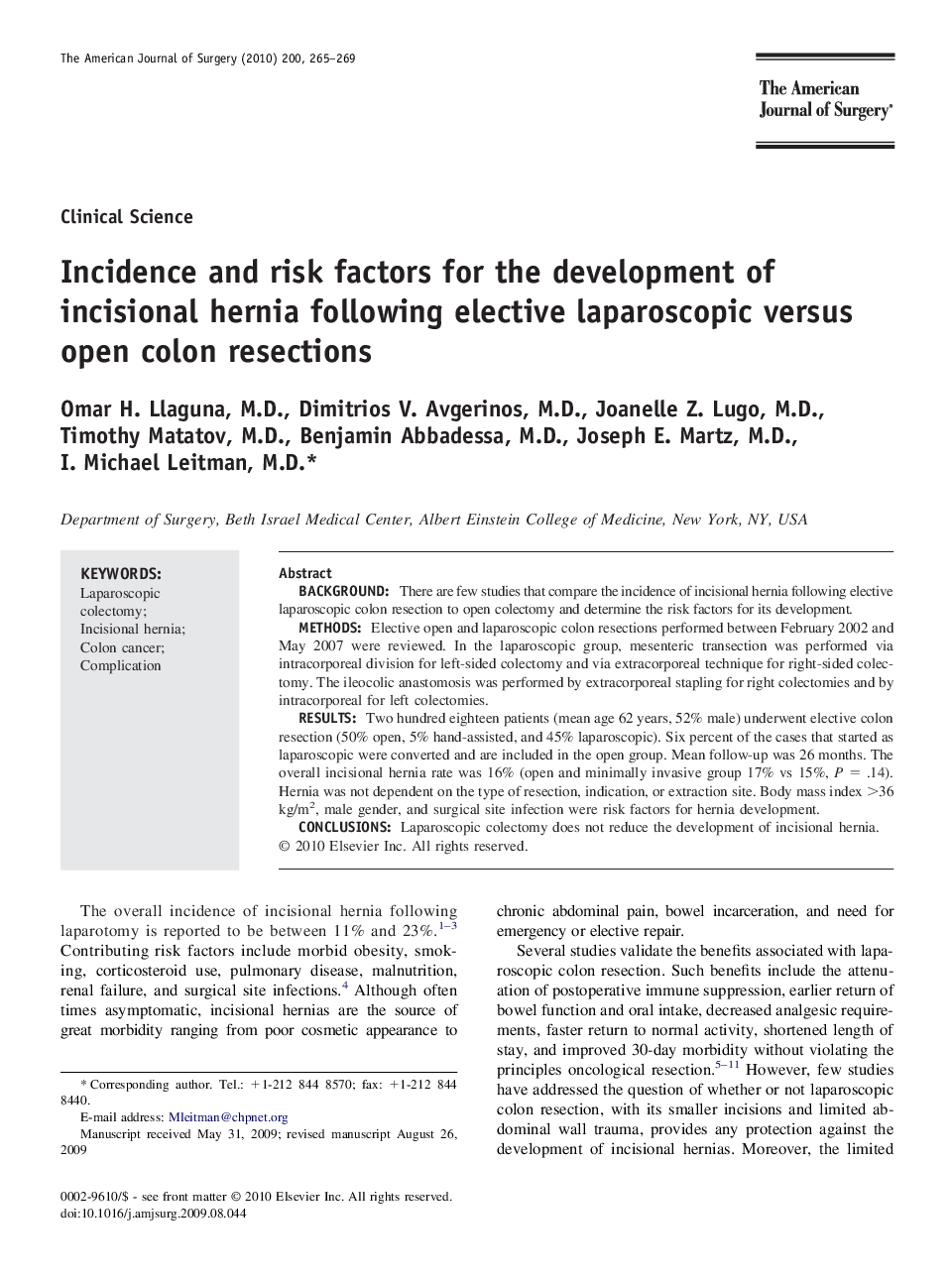| کد مقاله | کد نشریه | سال انتشار | مقاله انگلیسی | نسخه تمام متن |
|---|---|---|---|---|
| 4280180 | 1611552 | 2010 | 5 صفحه PDF | دانلود رایگان |

BackgroundThere are few studies that compare the incidence of incisional hernia following elective laparoscopic colon resection to open colectomy and determine the risk factors for its development.MethodsElective open and laparoscopic colon resections performed between February 2002 and May 2007 were reviewed. In the laparoscopic group, mesenteric transection was performed via intracorporeal division for left-sided colectomy and via extracorporeal technique for right-sided colectomy. The ileocolic anastomosis was performed by extracorporeal stapling for right colectomies and by intracorporeal for left colectomies.ResultsTwo hundred eighteen patients (mean age 62 years, 52% male) underwent elective colon resection (50% open, 5% hand-assisted, and 45% laparoscopic). Six percent of the cases that started as laparoscopic were converted and are included in the open group. Mean follow-up was 26 months. The overall incisional hernia rate was 16% (open and minimally invasive group 17% vs 15%, P = .14). Hernia was not dependent on the type of resection, indication, or extraction site. Body mass index >36 kg/m2, male gender, and surgical site infection were risk factors for hernia development.ConclusionsLaparoscopic colectomy does not reduce the development of incisional hernia.
Journal: The American Journal of Surgery - Volume 200, Issue 2, August 2010, Pages 265–269